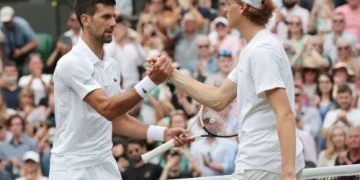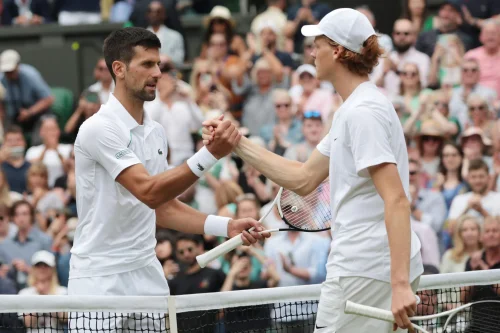Novak Djokovic ignited a firestorm of controversy at the Qatar Open on Monday, alleging widespread player discontent with the handling of recent doping cases, particularly those involving Jannik Sinner and Iga Swiatek.
Djokovic, currently ranked No. 7 in the world, claimed a majority of players believe Sinner and Swiatek received preferential treatment due to their status within the sport.
“It’s not a good image for our sport,” Djokovic stated during a press conference. “There’s a majority of the players that I’ve talked to in the locker room…who are not happy with the way this whole process has been handled.”
He further asserted, “A majority of the players don’t feel that it’s fair. A majority of the players feel like there is favoritism happening. It appears that you can almost affect the outcome if you are a top player, if you have access to the top lawyers and whatnot.”
Djokovic’s comments come on the heels of the World Anti-Doping Agency’s (WADA) announcement of a three-month ban for Sinner after he tested positive for clostebol in March.
The timing of the ban, strategically placed to avoid impacting Sinner’s participation in any of the remaining Grand Slam events this season, has drawn heavy criticism.
Sinner, who won both the 2024 U.S. Open and the 2025 Australian Open, attributed the positive test to accidental exposure through a team member’s medical treatment.
The International Tennis Integrity Agency (ITIA) also notably chose not to suspend Sinner in August, citing “no fault or negligence.”
Swiatek, former world No. 1, also received a relatively short one-month ban in November after testing positive for trimetazidine, which she claimed was due to contaminated medication.
Djokovic drew comparisons between these cases and those of other players, specifically mentioning Simona Halep and Tara Moore.
Halep received a four-year ban, later reduced to nine months, while Moore faced an 18-month investigation before being cleared. Djokovic’s point was clear: the system appears to favor top players.
His sentiments echo those of other players, including Liam Broady, who, in an interview with BBC Sport, highlighted the convenient timing of Sinner’s ban, ending just before the Rome Masters, a crucial tournament in his home country.
Broady suggested the ban’s timing seemed designed to minimize the impact on Sinner’s career.
Stan Wawrinka and Nick Kyrgios have also publicly criticized the Sinner settlement.
The Professional Tennis Players Association (PTPA) released a statement expressing concern over the “different rules for different players” and the perceived lack of transparency and consistency in the anti-doping process.





























